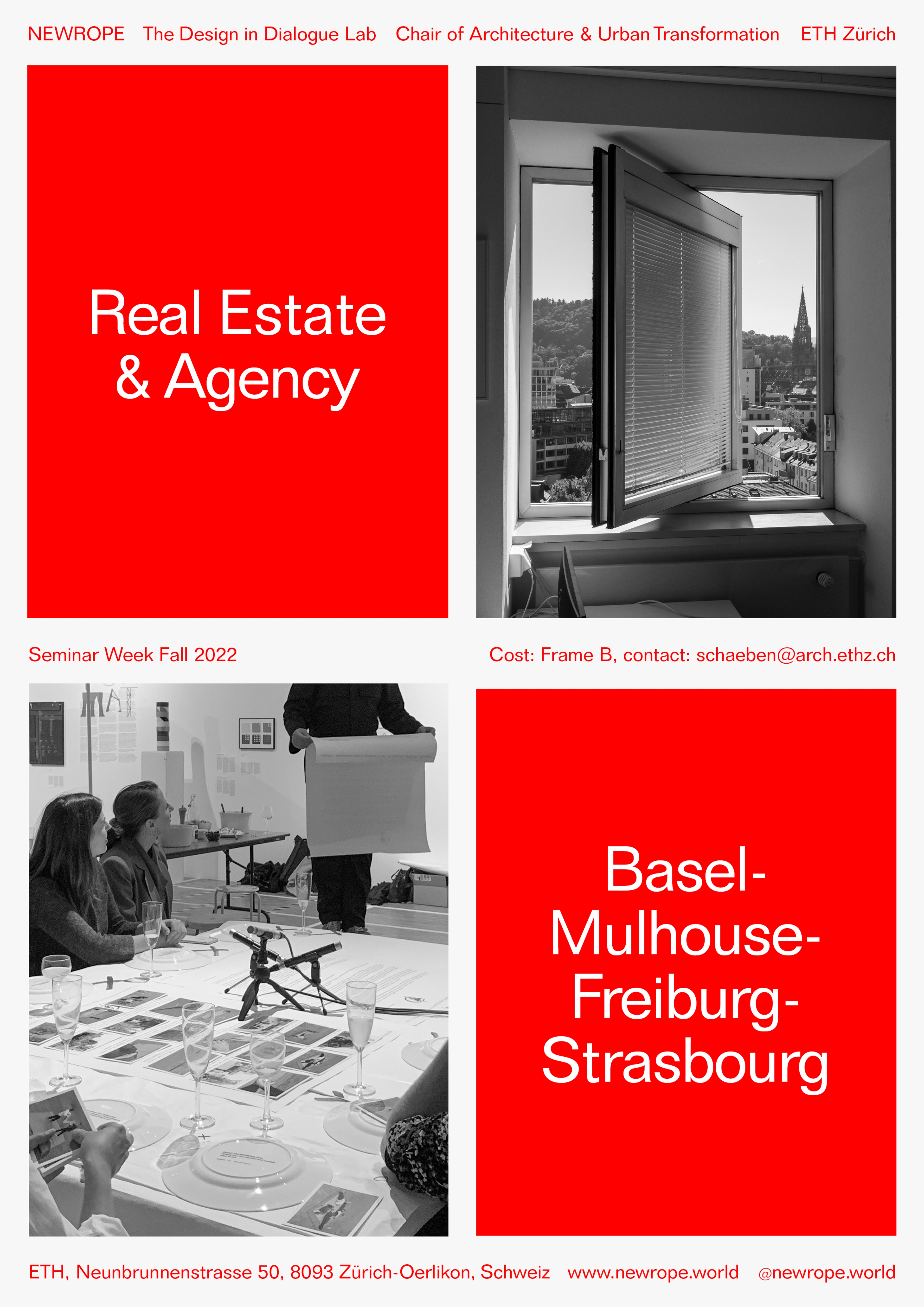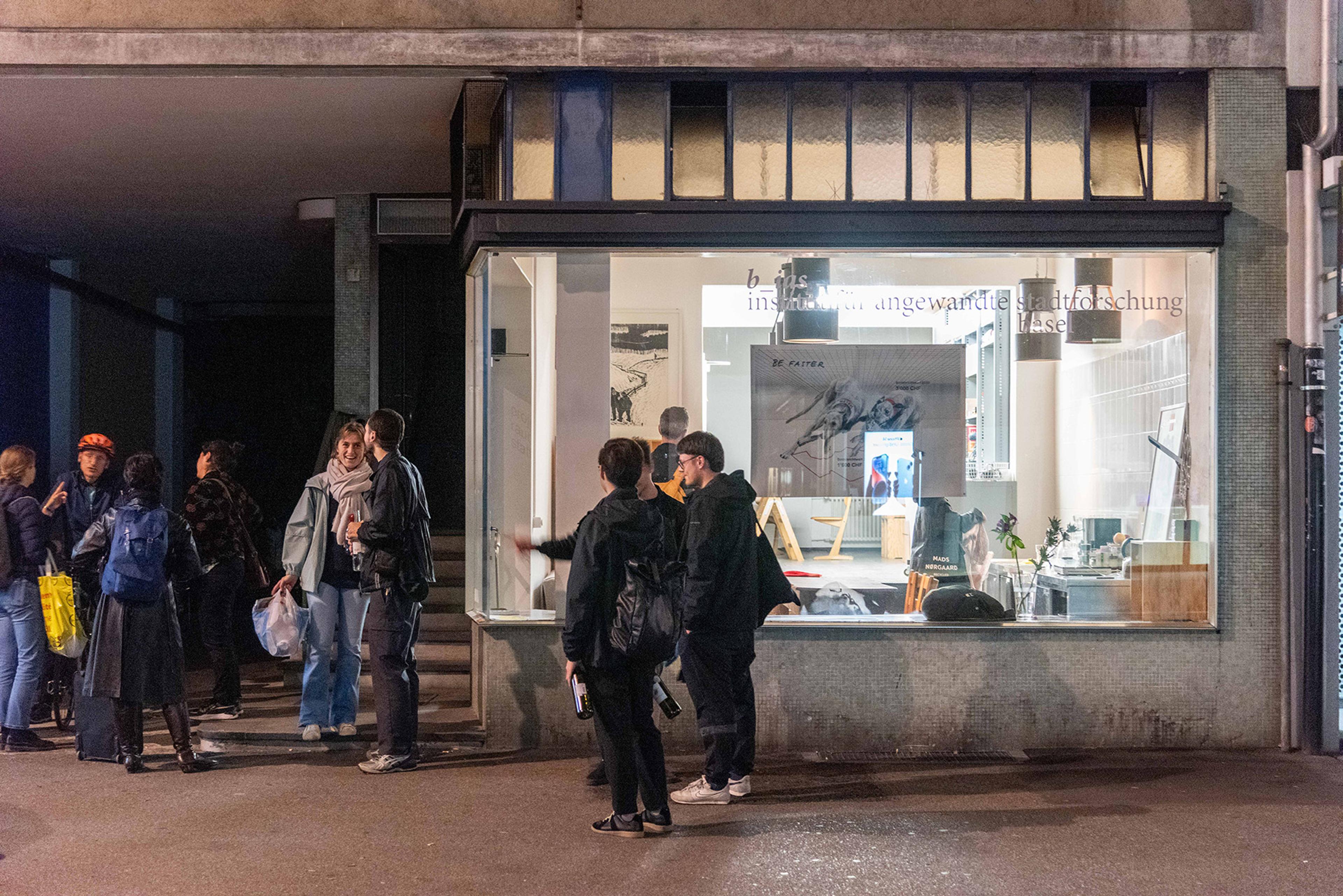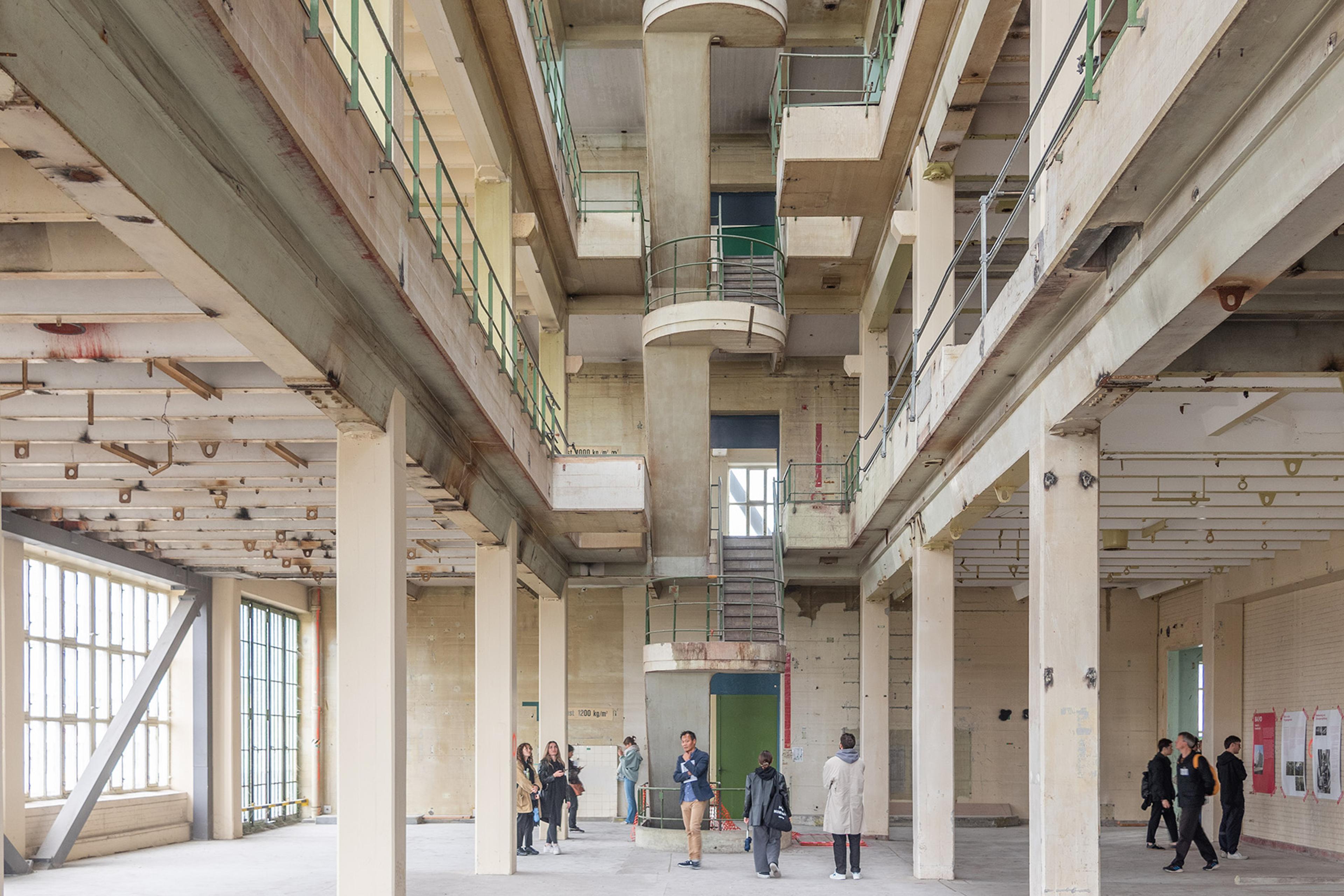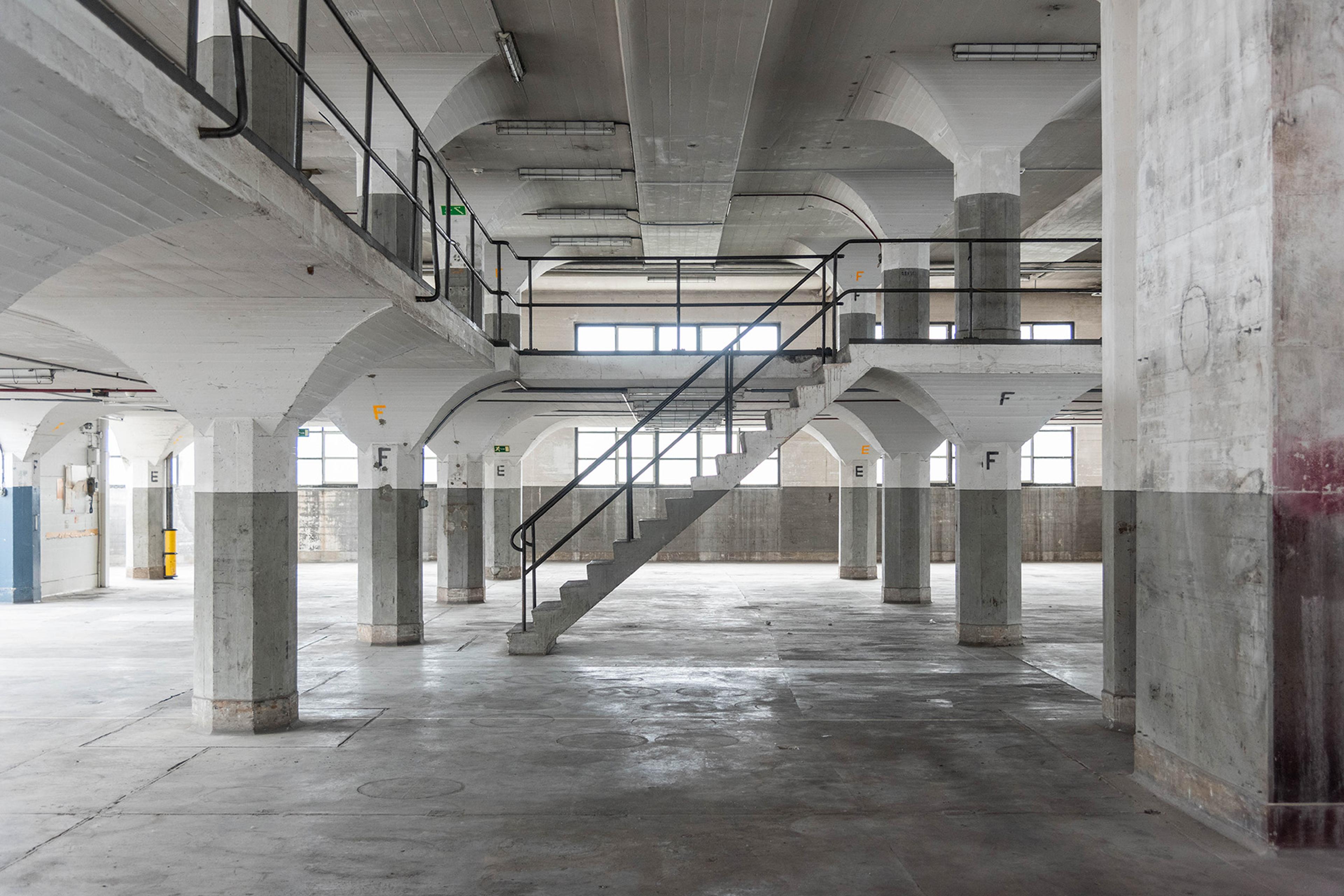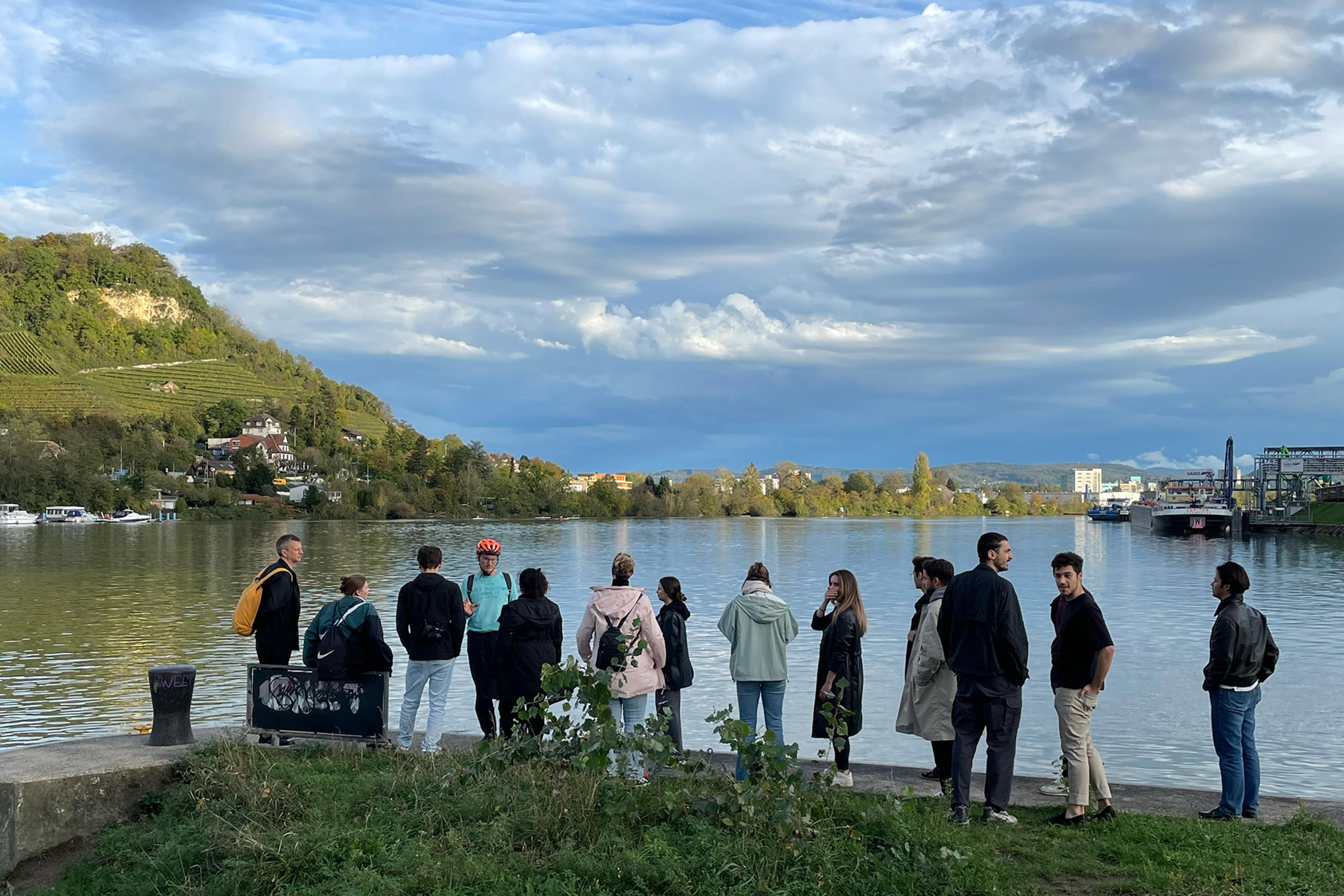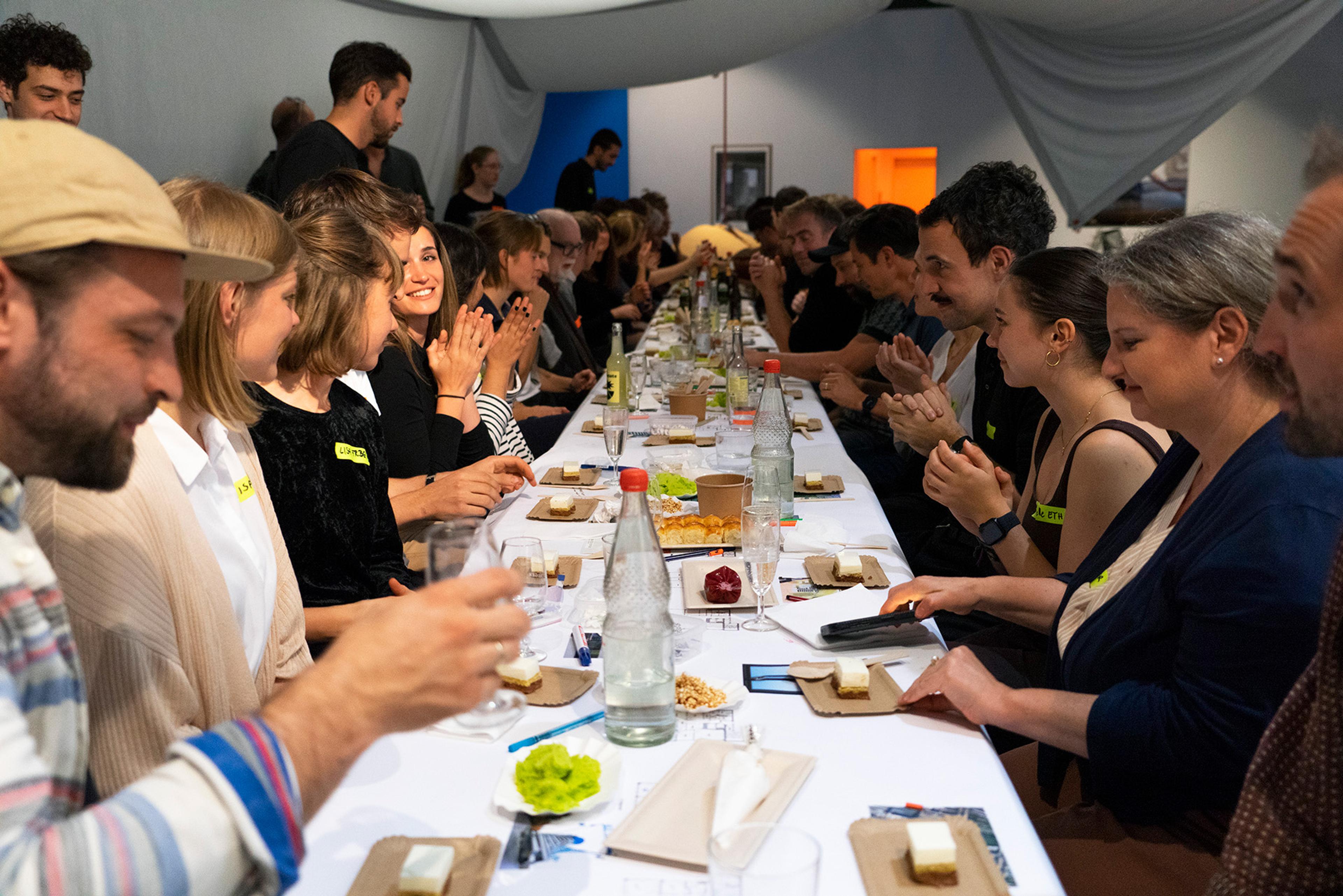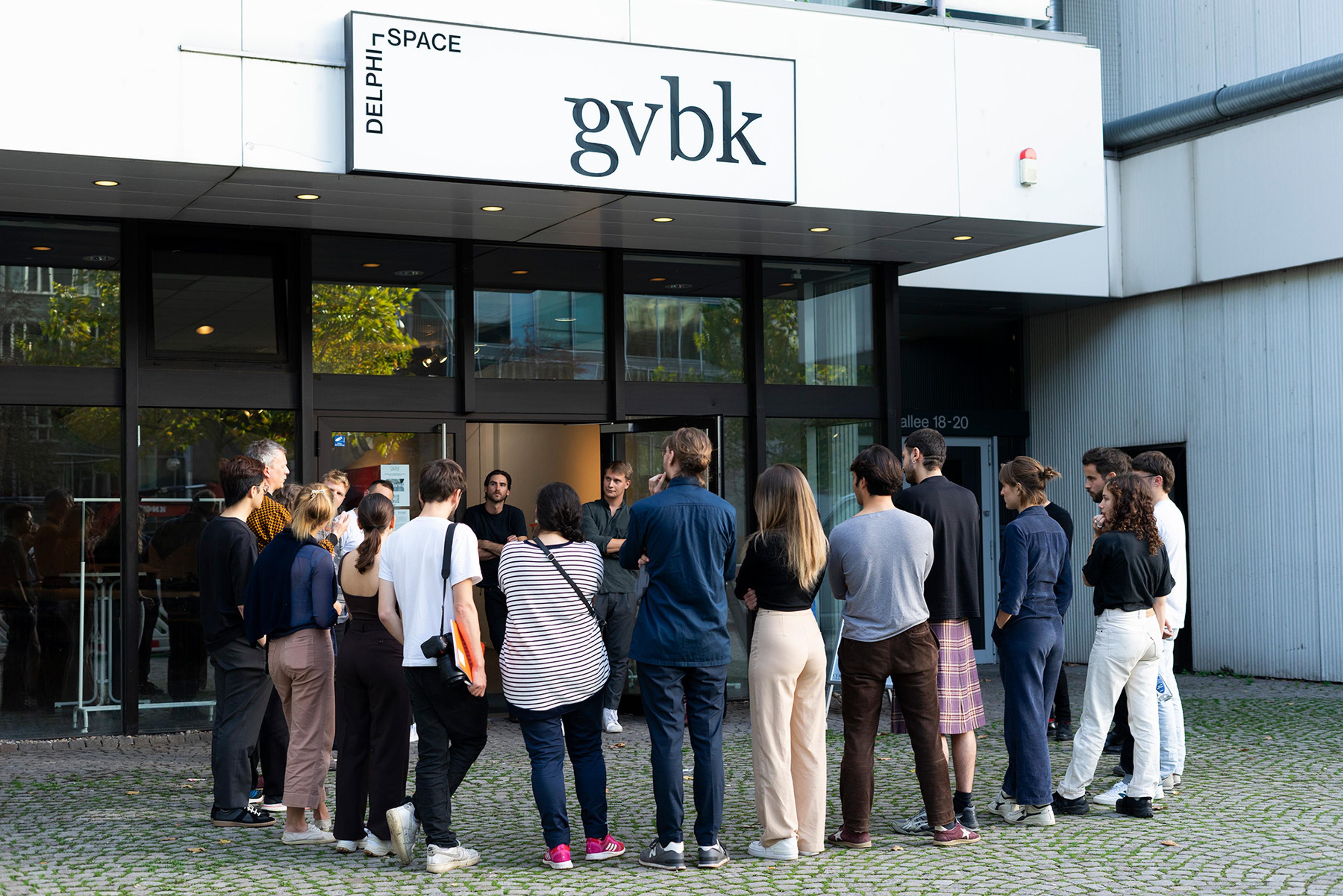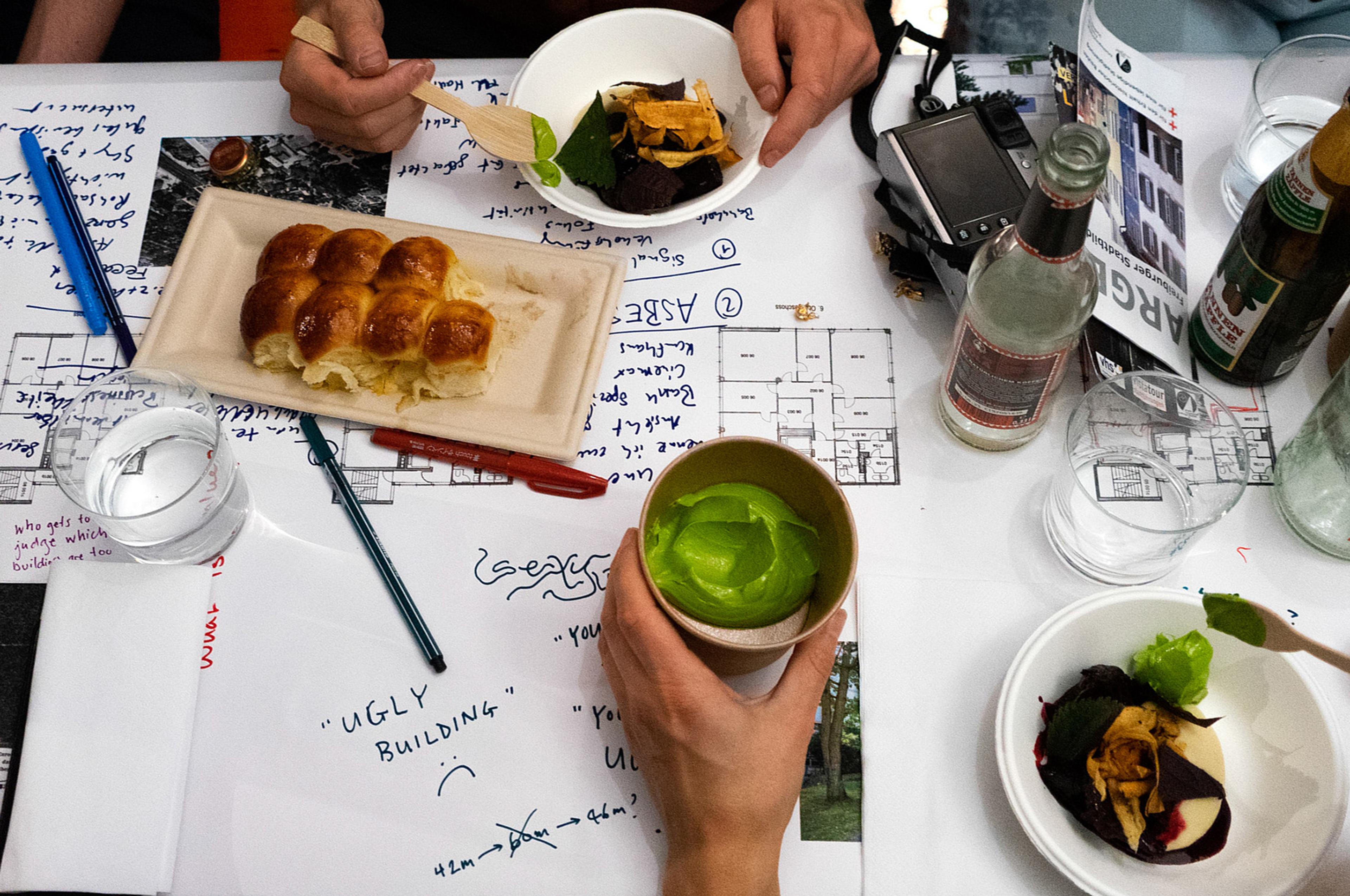Seminar Week – Real Estate & Agency
Introduction
Have you ever wondered how large urban transformation processes come about?
Which are the driving forces? Who are the actors involved? Especially when projects do not start from scratch but deal with the existing and given pre-conditions, any change entails a complex entanglement of interests. In this process, the architect plays only one of many roles that are mutually dependent and sometimes even conflicting. What role do for example real estate dynamics of market driven developments play in transformation processes? What alternative development models do exist? What kind of tools can help to establish adaptive re-use as an inclusive approach?
During the Fall 2022 seminarweek, we went on an explorative journey along the Rhine – a river of historic and emotional importance for Europe connecting various countries, including Switzerland, France and Germany. We moved from Zurich via Basel, Mulhouse, Freiburg to Strasbourg – via train, bus, bike and boat. Some of our stops were included in the programme of the Trinational Architecture Days 2022 of the “Maison européenne de l’architecture – Rhin supérieur”
In each city we visited one large urban transformation project. We listened to different perspectives, different voices and entered into dialogues with people involved. We tried to find out what role owners, interim users, activists, municipal offices or institutions such as universities or museums play in these processes. Local experts joined us along the way and introduced us to the current dynamics: Who decides what? Which power relationships are at stake? Who has which power to act – who has which agency?
During the evenings we collectively shared our meals in order to digest the impressions collected. These evenings were also test situations to design informal exchange. Our trip culminated in a performative dinner with local stakeholders in Freiburg, tackling the transformation process of the “Europaviertel” – a moment that both, generously invited and critically challenged everyone involved.
Context
Klybeck, Basel
The Klybeckareal is a former industrial area in Basel North of 300’000 m2. In 2019, Novartis AG and BASF sold their shares of the former chemical company Ciba. In August 2020, the planning partners, the canton Basel-city and the investors Swiss Life and Rhystadt presented their vision for the new urban quarter. The transformation is led by architects Diener & Diener, landscape architects Vogt, and transport planners Gruner. While the some of the outstanding industrial buildings are recently assigned the status of historical monuments, many new ones are to be built at the same time. How can processes of participation, co-design and appropriation be organized in the face of such a huge size?
La Fonderie, Mulhouse
La Fonderie was once part of a vast industrial complex owned by SACM (Société Alsacienne de Construction Mécanique), a company known for manufacturing textile machinery and locomotives. Industrial activity ceased in the 1960s, leaving behind an industrial “wasteland.” In 1993, the City of Mulhouse designated the area as a ZAC (Zone d’aménagement concerté)—a development zone where local authorities plan and coordinate new construction projects, whether housing, economic activities, or public facilities. Strategically located near the railway station and city center, the site was partially redeveloped into university buildings, with funding from multiple levels of government. However, challenges persist—from soil pollution and seismic risks to technical constraints posed by the scale and complexity of the original structures: to what extent can these structures actually be repurposed?
Europaviertel Freiburg
The name Europaviertel goes back to a former hotel "Europäischer Hof" which once stood on the same site before being demolished in the late 1960s.The term resurfaced in 2010 during an architectural competition that aimed to transform four adjacent plots through the demolition of existing structures. The Berlin-based firm Kleihues Architects won the competition with a proposal for a highly densified urban block. However, their ambitious vision triggered a complex web of opacity, ownership disputes, and uncertainty for the site's users. As a result, the project remains on hold to this day. In the meantime, the University of Freiburg became an interim tenant early on, followed by others such as the art collective Delphi Space, the Huji Maja association, and a vibrant mix of artists and musicians who temporarily made the site their own. According to the property owner, the current situation is expected to last another four years before final demolition. So the question arises: what meaningful use can be made of this time?
Les deux rives, Strasbourg
In the second half of the 20th century, Strasbourg expanded to the north, south, and west—but not eastward, toward the Franco-German border. With a growing desire to strengthen cross-border ties and address increasing housing demands, the city launched the Deux-Rives project. This project involves transforming approximately 250 hectares of former port and industrial land, stretching from the Ill River to the banks of the Rhine—linking Strasbourg’s Heyritz district with the German town of Kehl am Rhein. More than just an urban renewal effort, Deux-Rives aims to reimagine the border not as a line of separation, but as the spine of a shared, continuous urban fabric. It reflects a conscious effort to embrace Strasbourg’s unique identity—shaped by its industrial legacy and status as home to France’s second-largest inland port—and to claim its role as a true port city. But what does it really mean to be a port city today?
Programme
During the week, we visited 4 different case studies of large-scale urban transformation projects in 3 different countries and 4 different cities. In each city we got to know different perspectives on the past, present, or future transformation. We got to know the many different roles that are inherent to theses processes and their respective agency. In order to digest the impressions and information collected during the day, we spent the evenings cooking and eating together. The exercise of the first 3 nights culminated in the event on Thursday night, were collectively curated a dinner with the many different stakeholders of the Europaviertel Freiburg.
Day 1 – Klybeck Plus, Basel. Guided by Andreas Ruby, we cycled along the Rhine before visiting some of the site’s former industrial buildings. We got to know activist, (interim) users, and the investors. We ended the day with self-made soup and a collective reflection.
Day 2 – La Fonderie, Mulhouse. The former mechanical factory hosts the University of Haute-Alsace and the Kunsthalle of Mulhouse today. We strolled around by foot with users and planners and collectively started to curate questions during the collective dinner.
Day 3 – Europaviertel, Freiburg. Supposed to be demolished 10 years ago, the buildings of the 70ies are now partially used by the University Freiburg and local cultural groups as interim users. We got to know some users, the city planner and representatives of the Mietshäuser Syndikat and appropriated a vacant ground floor space as our temporary soup kitchen for the night.
Day 4 – Perspektive Europaviertel - Curated Dinner. In the scope of the tri-national Architecture Days with this year’s topic “resources” we organized a dinner with around 60 guests, stakeholders and interested public around the topic of the Europaviertel with from prepared by HAWARA.
Day 5 – Les Deux Rives, Strasbourg. We got to know the project by visiting the project space “point coop” and a guided tour from some of the responsible planners. We ended the afternoon with a collective Apéro along the Rhine. The evening was left open for individual exploration.
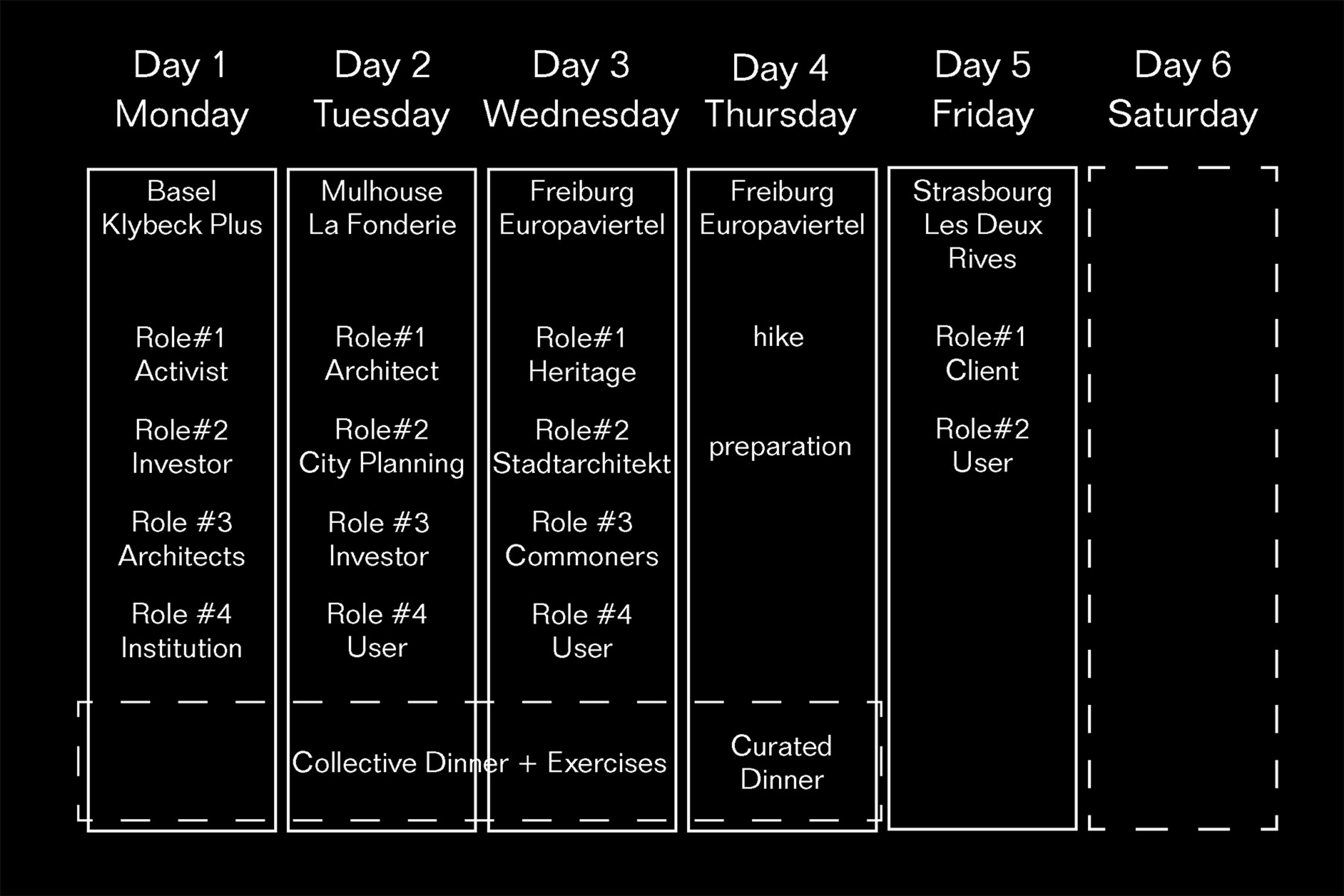
Schedule of the Seminar Week
Credits
[team] Charlotte Schaeben, Natassa Dourida, Freek Persyn
[contributors] Ivo Balmer, Michael Roth, Raphael Schicker, Andreas Ruby, Katharina Baur, Denkstatt, Chun-Oh Ryser, Christian Plisson, Eric Sabot, Christine Schneider, Matthias Möller, Helma Haselberger, Max Munkel, Mario Held, Günther Schmidt-Gess, Christian Kny, Michael Bielecke, Matthias Fehrenbach, Joschka Kannen, Max Siebenhaar, Daniel Vollmer, Delphi Space, Tholos Talks, Hawara, Huji Maja, Benjamin Pellegrin and many more.
[Curated Dinner Freiburg] Delphi Space, Acute, Tholos Talks, Hawara, Max Schropp, Jana Slaby, Freek Persyn, Charlotte Schaeben
[students] Marlon Brownsword, Nico Canal, Vivienne Galliker, Lea Jenzer, Michelle Krebs, Alissa Luks, Marthe Maerten, Luca Peter, Lisa Suremann, Alexander Throm, Raphael Uhl, Javier Ares, Sum Ho Hong, Simon Assal
